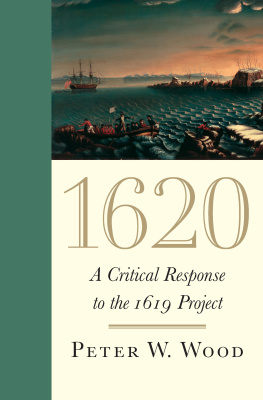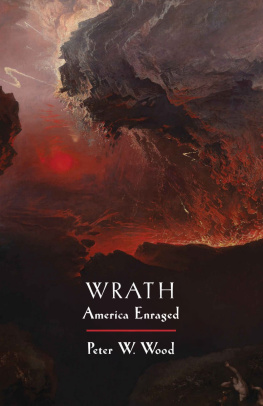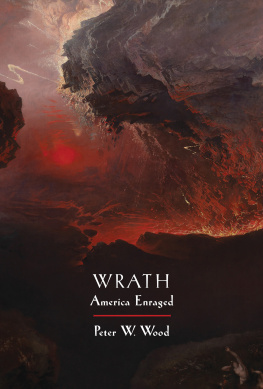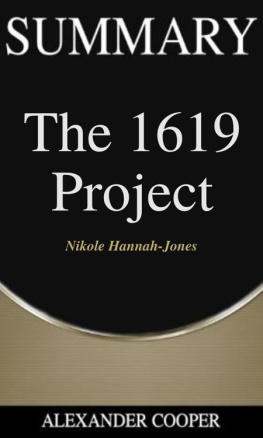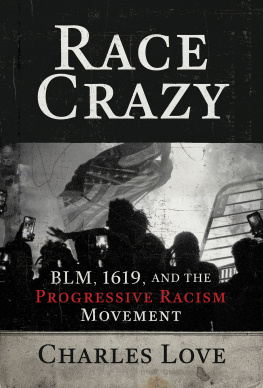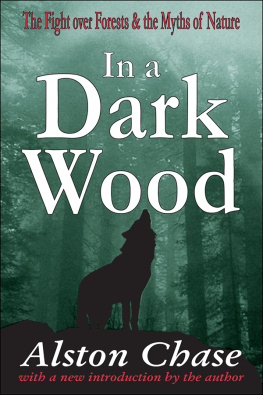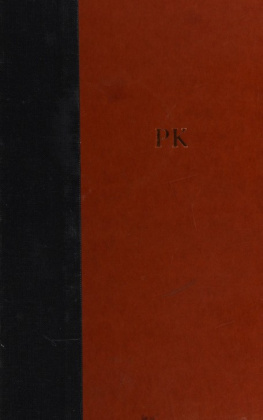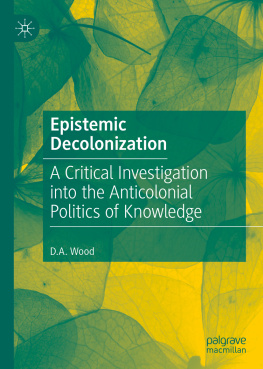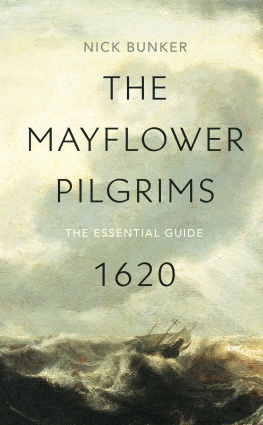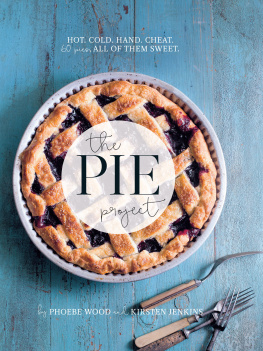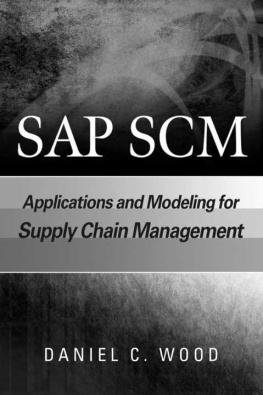Peter W. Wood - 1620: A Critical Response to the 1619 Project
Here you can read online Peter W. Wood - 1620: A Critical Response to the 1619 Project full text of the book (entire story) in english for free. Download pdf and epub, get meaning, cover and reviews about this ebook. year: 2020, publisher: Encounter Books, genre: Politics. Description of the work, (preface) as well as reviews are available. Best literature library LitArk.com created for fans of good reading and offers a wide selection of genres:
Romance novel
Science fiction
Adventure
Detective
Science
History
Home and family
Prose
Art
Politics
Computer
Non-fiction
Religion
Business
Children
Humor
Choose a favorite category and find really read worthwhile books. Enjoy immersion in the world of imagination, feel the emotions of the characters or learn something new for yourself, make an fascinating discovery.
- Book:1620: A Critical Response to the 1619 Project
- Author:
- Publisher:Encounter Books
- Genre:
- Year:2020
- Rating:5 / 5
- Favourites:Add to favourites
- Your mark:
- 100
- 1
- 2
- 3
- 4
- 5
1620: A Critical Response to the 1619 Project: summary, description and annotation
We offer to read an annotation, description, summary or preface (depends on what the author of the book "1620: A Critical Response to the 1619 Project" wrote himself). If you haven't found the necessary information about the book — write in the comments, we will try to find it.
1620: A Critical Response to the 1619 Project — read online for free the complete book (whole text) full work
Below is the text of the book, divided by pages. System saving the place of the last page read, allows you to conveniently read the book "1620: A Critical Response to the 1619 Project" online for free, without having to search again every time where you left off. Put a bookmark, and you can go to the page where you finished reading at any time.
Font size:
Interval:
Bookmark:

Advance Praise for 1620
Peter Woods pushback against the 1619 Project is at once sharp, illuminating, entertaining, and profound. More than a powerful expos of the 1619 Projects mendacity, Woods 1620 explains why so many Americans have succumbed to this exercise in manipulation and shows the way to fight back.
STANLEY KURTZ
senior fellow, Ethics and Public Policy Center
Via Peter Wood, the civil body politic of the Mayflower Compact reasserts itself in the national conversation. 1620 is a dispassionate, clear reminder that the best in Americas past is still Americas best future.
AMITY SHLAES
chair, Calvin Coolidge Presidential Foundation
Peter Woods 1620 claims the prize as the most comprehensive response to the ill-fated 1619 Project. In a thorough review of the text, Wood accounts for every argument for and against. He appropriately honors the Projects intention to pursue a mission of redress, while nevertheless pinpointing its consistent resort to misrepresentation that cannot be dismissed as merely different interpretation. Wood identifies the heart of the matter: Surely there are ways to incorporate a forthright treatment of slavery, racism, and the black experience into the story of Americas rise as a free, self-governing, creative, and prosperous nation. The key to doing that is to put the pursuit of the ideals of liberty and justice at the center of the story. The 1619 Project failed in that for the sufficient reason that its purpose was cultural shakedown, not cultural affirmation. That is made plain in this necessary work.
WILLIAM ALLEN
emeritus dean and professor, Michigan State University
With elegant precision Peter Wood dismantles the edifice ostentatiously called a reframing of American history, the 1619 Project. He deftly exposes the jumble of lies, half-lies, logical fallacies, bad history, and bad faith of a project motivated by greed and hatred of America. For anyone who cares about history, education, truth, and the United States of America, 1620 is essential reading.
MARY GRABAR
resident fellow, Alexander Hamilton Institute
Peter Woods survey of the landscape of scholarly criticism has provided a valuable service, both in assessing the heated historical debates around the 1619 Project and by offering readers an accessible road-map with which to navigate its many controversies. Unfortunately the New York Times has thus far conspicuously avoided the most salient criticisms of its work. This helpful guide masterfully curates the scholarly scrutiny that the newspaper evaded and ignored, equipping the reader to approach the 1619 Project with a discerning eye for evidence-based history.
PHILLIP W. MAGNESS
senior research fellow, American Institute for Economic Research
Those of us who remain attached to the principles of the Founding need to read 1620: A Critical Response to the 1619 Project with both care and gratitude. For Peter Wood, like a highly trained commando, has advanced to the front lines to clear away the dangerous rubbish put forth by the 1619 Project. With critical skill and in clear prose, he has opened multiple avenues of assault on a misguided enterprise that in trying to rewrite history deserves to end up on its ash-heap.
ROBERT PAQUETTE
president, Alexander Hamilton Institute; emeritus professor of history, Hamilton College
1620

1620
A Critical Response to the 1619 Project

PETER W. WOOD



2020 by Peter W. Wood
All rights reserved. No part of this publication may be reproduced, stored in a retrieval system, or transmitted, in any form or by any means, electronic, mechanical, photocopying, recording, or otherwise, without the prior written permission of Encounter Books, 900 Broadway, Suite 601, New York, New York, 10003.
First American edition published in 2020 by Encounter Books, an activity of Encounter for Culture and Education, Inc., a nonprofit, tax exempt corporation. Encounter Books website address: www.encounterbooks.com
Manufactured in the United States and printed on acid-free paper. The paper used in this publication meets the minimum requirements of ANSI/NISO Z39.48I992 (R 1997) (Permanence of Paper).
FIRST AMERICAN EDITION
LIBRARY OF CONGRESS CATALOGING-IN-PUBLICATION DATA
Names: Wood, Peter, 1953 author.
Title: 1620 : a critical response to the 1619 Project / Peter W. Wood.
Other titles: Critical response to the 1619 Project
Description: New York, NY : Encounter Books, [2020] | Includes bibliographical references and index. |
Identifiers: LCCN 2020032266 (print) | LCCN 2020032267 (ebook) |
ISBN 9781641771245 (cloth) | ISBN 9781641771252 (ebook)
Subjects: LCSH: SlaveryUnited StatesHistory. | United States
HistoryStudy and teaching. | 1619 Project. | United StatesHistoriography. | Critical pedagogy.
Classification: LCC E441.W873 2020 (print) | LCC E441 (ebook) | DDC 306.3/620973dc23
LC record available at https://lccn.loc.gov/2020032266
LC ebook record available at https://lccn.loc.gov/2020032267
CONTENTS
PRELIMINARIES
WHAT IS THE 1619 PROJECT?
O N SUNDAY, August 18, 2019, the New York Times published a special issue of The New York Times Magazine announcing The 1619 Project. Along with the 100-page magazine, the New York Times released a sixteen-page newsprint section under the same title and headlined Weve Got to Tell the Unvarnished Truth, quoting the late historian John Hope Franklin.
On the opening page of the magazine, Jake Silverstein, the Times editor in chief, stated the projects aim:
The goal of The 1619 Project, a major initiative from The New York Times that this issue of the magazine inaugurates, is to reframe American history by considering what it would mean to regard 1619 as our nations birth year. Doing so requires us to place the consequences of slavery and the contributions of black Americans at the very center of the story we tell ourselves about who we are as a country.
Reframing the countrys history is an extraordinarily ambitious goal, and not something one would ordinarily expect to come from a newspaper. The Times, however, is not the least bit circumspect in announcing it. The 1619 Project is, in other words, an all-out effort to replace traditional conceptions of American history with a history refracted through the lens of black identity politics.
This approach goes far beyond the case for teaching African American Studies in colleges or making sure that black history is integrated in school curricula. Instead of asserting the need to add to traditional American history a fuller account of the black experience, the 1619 Project calls for replacing that traditional account with one that makes the black experience primary and not just for black Americans, but for all Americans.
Next pageFont size:
Interval:
Bookmark:
Similar books «1620: A Critical Response to the 1619 Project»
Look at similar books to 1620: A Critical Response to the 1619 Project. We have selected literature similar in name and meaning in the hope of providing readers with more options to find new, interesting, not yet read works.
Discussion, reviews of the book 1620: A Critical Response to the 1619 Project and just readers' own opinions. Leave your comments, write what you think about the work, its meaning or the main characters. Specify what exactly you liked and what you didn't like, and why you think so.

